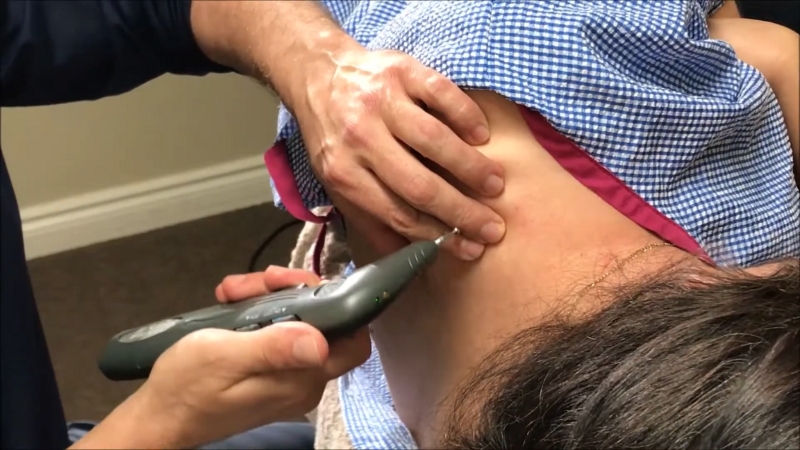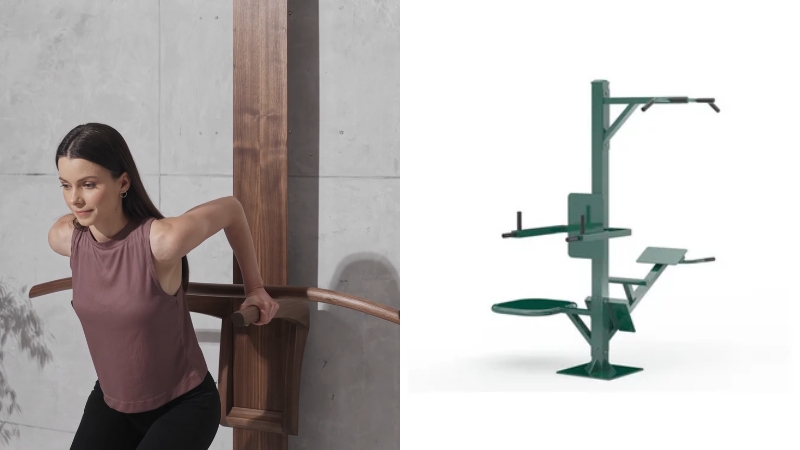
Share Post:
Research over the past decade consistently shows that acupuncture provides equal or greater relief for neck pain compared to conventional medication—especially for chronic or nonspecific cases.
A 2022 meta-analysis published in BMJ Open found that patients receiving acupuncture reported 28% greater pain reduction on average than those on NSAIDs or muscle relaxants, with significantly fewer adverse effects.
Meanwhile, medications like ibuprofen, naproxen, and cyclobenzaprine are often limited to short-term use due to gastrointestinal, renal, or dependency concerns.
In clinical practice, acupuncture has gained traction not just as a complementary treatment but as a first-line option in integrative medicine settings. Many pain management guidelines in Europe and Asia now prioritize acupuncture over medication for certain musculoskeletal conditions, citing higher patient satisfaction and lower withdrawal rates.
Targeted Stimulation of the Nervous System
Acupuncture is a form of Traditional Chinese Medicine (TCM) that involves inserting thin needles into precise points on the body to modulate pain, inflammation, and stress responses. Scientifically, it’s now understood to:
- Stimulate endorphin and serotonin release
- Activate descending inhibitory pathways that block pain signals in the brain
- Reduce pro-inflammatory cytokines in tissues
- Improve blood flow and reduce muscle tightness
Modern applications often include electroacupuncture, where mild electrical pulses are applied to needles to enhance effectiveness, particularly in nerve-related or muscular neck pain.
Medications: Systemic Intervention with Short-Term Relief
The most commonly prescribed medications for neck pain include:
- NSAIDs (e.g., ibuprofen, naproxen): reduce inflammation and relieve pain short term
- Muscle relaxants (e.g., cyclobenzaprine): suppress muscle spasms
- Opioids (e.g., tramadol): rarely used today due to the risk of dependency
- Topical analgesics (e.g., lidocaine): offer localized, temporary relief
These medications are effective for acute inflammation but must be carefully monitored due to side effects, especially with long-term use.
Cost and Access: Which Is More Practical?

Direct Comparison in the U.S. (2025 Estimates)
| Treatment | Average Cost (per month) | Insurance Coverage | Access |
| Acupuncture | $75–$125/session | Partial (w/ referral) | Widely available in metro areas |
| NSAIDs | $10–$40 (OTC or Rx) | Yes | Very accessible |
| Muscle Relaxants | $15–$70 | Yes | Requires Rx |
According to SingleCare, demand for acupuncture is increasing as more private insurers and Medicare plans include it under musculoskeletal pain coverage. However, out-of-pocket costs can still be high if multiple sessions are needed and no referral is provided.
Clinical Evidence: Which Works Better?
Meta-Analysis Results from Major Studies
| Treatment | Pain Score Reduction (VAS Scale 0–10) | Functional Improvement | Duration of Effect | Side Effects |
| Acupuncture | –3.1 points | High (↑ ROM, ↓ tension) | Up to 12 months | Low (bruising, fatigue) |
| NSAIDs | –2.4 points | Moderate | 1–2 weeks | Moderate (GI issues, hypertension) |
| Muscle Relaxants | –2.0 points | Low to moderate | Days to 1 week | High (sedation, dry mouth) |
(Source: BMJ Open, 2022; Cochrane Database of Systematic Reviews, 2023)
Acupuncture consistently outperforms medication in chronic or nonspecific neck pain, especially when pain has lasted longer than 3 months. Its benefit is also longer-lasting, often maintaining improvement up to 12 months post-treatment, particularly with maintenance sessions every 4–6 weeks.
Combined Approach: Best of Both Worlds
According to a German insurance database study of 3,451 patients:
- Acupuncture alone: 46% remained pain-free at 3-month follow-up
- NSAIDs alone: 21% reported sustained relief
- Combination therapy: 58% success rate
This supports what many integrative medicine clinics practice today: start with acupuncture for long-term regulation, and use short-term medication to reduce inflammation or manage severe flares.
Safety Profile and Tolerability

Medication Risks
| Medication | Common Risks | Long-Term Issues |
| NSAIDs | GI upset, kidney strain, high BP | Ulcers, renal impairment |
| Muscle Relaxants | Sedation, dizziness | Dependency, tolerance |
| Opioids | Respiratory suppression | Addiction, overdose risk |
Opioids in particular are now rarely recommended for neck pain, as outlined in CDC guidelines and echoed by orthopedic and pain societies worldwide.
Acupuncture Safety
Acupuncture is generally considered safe when performed by a licensed practitioner. Reported side effects are rare and typically mild:
- Light bleeding or bruising at needle sites
- Fatigue or dizziness after sessions
- Fainting in needle-phobic individuals
Serious complications like nerve injury or infection are extremely rare, especially in regulated clinical settings.
When Acupuncture May Be Better
@art_of_acu_ #neckpain #acupressure #chinesemedine #neckpains #neckpainrelief #neckpaintreatment #acupuncture #chinesemedicine ♬ original sound – Bob Wong
Acupuncture has shown the strongest benefits in non-acute, persistent neck pain cases, especially when pain is muscular, postural, or stress-related.
It is often more effective than medication when the goal is to reduce chronic discomfort without introducing new risks from daily pill use.
Clinical Indications Where Acupuncture Performs Best
- Chronic neck pain (lasting longer than 3 months): Multiple studies—including a 2023 review published in The Clinical Journal of Pain—have demonstrated that acupuncture is especially effective in treating long-standing neck pain where medication has plateaued or failed to provide lasting relief. Acupuncture not only reduces pain but also improves function, flexibility, and quality of life metrics.
- Medication intolerance or side-effect risk: Patients who cannot tolerate NSAIDs due to gastrointestinal conditions (such as gastritis, ulcers, or GERD), kidney disease, or cardiovascular risk factors often benefit from acupuncture, which has virtually no systemic side effects. For these patients, acupuncture offers a safer, viable long-term solution.
- Stress-related muscular tension and myofascial trigger points: Individuals with high-stress lifestyles—such as office workers or caregivers—often develop pain patterns driven by muscular tightness, rather than inflammation. Acupuncture reduces sympathetic nervous system activity and relaxes affected muscle groups, offering both physical and psychological relief.
- Postural strain or “tech neck”: For people who spend hours at a desk or looking down at screens, poor posture leads to overuse injuries in the neck, shoulders, and upper back. Acupuncture can help reverse those patterns by promoting blood flow and releasing fascia and muscle tension that conventional medication cannot address directly.
In addition to pain relief, many patients report secondary benefits from acupuncture such as improved sleep, reduced anxiety, and better range of motion—results that standard medications rarely provide. These broader outcomes make acupuncture especially attractive for those seeking holistic recovery rather than symptom suppression.
When Medication Still Makes Sense

While acupuncture is well-suited for chronic and stress-related pain, there are several scenarios where conventional medication remains appropriate and effective, especially in acute conditions or when rapid symptom control is needed.
Clinical Situations Where Medication May Be Preferable
- Acute neck strain, whiplash, or recent injury: When neck pain is the result of sudden trauma—such as a fall, car accident, or recent sports injury—NSAIDs can offer fast-acting inflammation control during the critical first 72 hours. In these situations, acupuncture may be delayed until swelling subsides.
- Inflammation-driven pain or nerve impingement: If imaging reveals inflammation pressing on nerve roots (e.g., cervical radiculopathy), initial use of anti-inflammatory drugs may be necessary to reduce swelling and prevent neurological symptoms. Topical medications like lidocaine or diclofenac gel can also help during this period.
- Barriers to accessing acupuncture: In some regions, patients may not have nearby access to licensed acupuncturists. Insurance coverage may also be limited. In such cases, medication may be the only practical short-term option until alternative care becomes available.
- Urgent short-term relief: For patients traveling, attending events, or needing to remain functional during work travel, short courses of medication may offer needed relief. These medications can make it easier to begin physical therapy or other rehab interventions.
Final Takeaway
If you’re deciding between acupuncture and medication for neck pain, the answer depends on your pain duration, medical history, and goals. For chronic neck pain, acupuncture has consistently shown superior outcomes, fewer risks, and more sustainable results than common medications.
Medications like NSAIDs still have a place for short-term inflammation, but they carry risks that accumulate over time. Acupuncture, on the other hand, supports recovery through nervous system modulation, endorphin release, and physical relaxation, with minimal downside.
For many patients, the best strategy is a short course of medication paired with a structured acupuncture plan. As more insurers and pain specialists support integrative options, acupuncture has become a mainstream, data-supported too, not just an “alternative.”
Related Posts:
- Jawline Routine For Women - Steps For Better Facial…
- Is Swimming Better Than Yoga for Flexibility and…
- How to Improve Neck Alignment Based on Your Sleep Position
- 10 Simple Face Exercises That Women Over 40 Follow…
- Are Concussions in Sports More Dangerous Than We Think?
- 8 Signs Your Body Needs More Than a Multivitamin














